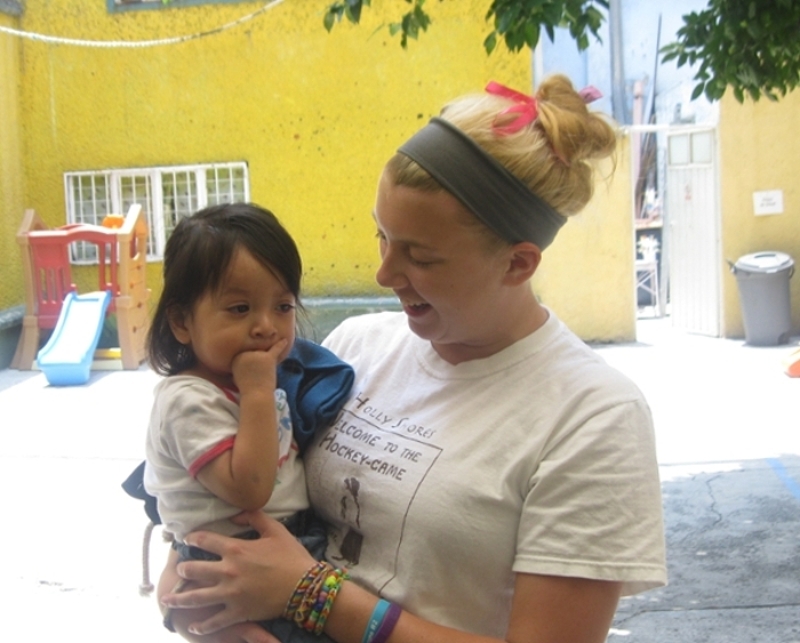University Students Travel Throughout the Western Hemisphere for Service Trips this Summer

More than 100 University of Scranton students traveled over the summer to ten different locations throughout Central and South America for service trips to help impoverished people.
Students spent one to two weeks in such countries as El Salvador, Haiti, Guatemala, Nicaragua, Ecuador and Guyana. Along the way, they learned more about other cultures and the hardships faced by people in other parts of the world, and also more about themselves.
Hayden Strickland, a senior health administration major from Scranton, was one of 12 students who went to the Dominican Republic. The group spent a week building a home for a family of three in the town of La Herradura. They worked with Cambiando Vidas, an organization that constructs houses for financially troubled families.
“Although it was probably one of the hardest weeks of my life, it was definitely one of the greatest,” Strickland said, noting that everyone in the community – from children to elderly residents – accepted the students with open arms and helped with the projects.
The biggest challenge was not the language barrier, Strickland said, but rather the manual labor itself. “Every day, the work was very challenging at the work site – carrying around buckets of cement, lifting them over my head, or mixing up some cement,” he said. “Communicating with the Dominicans was not as hard as we all thought it would be, having known little to no Spanish. Most of the communication was through body language, whether it was pointing and using our hands for instruction, or enjoying all of the smiles from the community members, especially the children.”
The experience gave Strickland and his classmates a better understanding of a vastly different way of life. “Learning and living their culture for a whole week was just so interesting and amazing. ‘Cambiando Vidas’ in Spanish means “changing lives” and this clearly happened, not just to the family (for whom we built the home) but to myself and my peers on this trip. It was by far the best learning experience of my life.”
Julia Dolan, a junior counseling and human services major from Clark, New Jersey, traveled to Mexico with seven other female students. They spent two weeks living with girls of the Yolia Project, a home for at-risk children and teens. They divided their time between the home and a day care center for younger children, also run by the Yolia Project.
“Each day at the Girls’ Home we helped around the home as much as we could with cleaning, chores, preparing lunch, taking the younger kids to school, and of course fun stuff too like bracelet-making and dancing. At the day care center we helped the teachers with children from one to five (years old), as far as feeding, playing, learning and dancing.”
Dolan called the experience “a solidarity trip” because the students lived with the children. “We ate breakfast, lunch and dinner with these girls, helped them with their chores, and also, each night, we reflected with them as we all prayed together.”
“Every night multiple girls said they were grateful for all of us coming to stay with them, and I think those nightly reflections were some of my favorite memories during my time in Mexico,” Dolan said. “I think the relationships that I built with the girls, and a little boy, Alan, are what made this trip so special and so rewarding to me.”
“Something that really opened my eyes was that, even though I had such a different childhood than these girls do, our common interests weren’t that different from one another. The games and dances they would play are ones I also played with my neighborhood friends when I was younger.”
Dolan said she was humbled by the girls’ positive attitude in the face of difficult life circumstances. “These girls have so much to be upset and down about, but it was very rare that I would see a girl cry or get upset.”
Dolan came to appreciate her own family much more during the trip when she saw how the girls at Yolia lived separately from their families. She also said she became “a more flexible person while on this trip, and it has given me a new view on my own life, and how to have a more positive view on things.”
Her service work in Mexico has also inspired her, she said, to continue community service work in the future.






